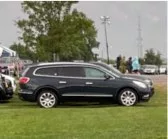Reorganization Bankruptcy for Consumer Debtors
Experiencing a vehicle repossession can be a distressing event, but there is a legal avenue that might help you regain control of your repossessed vehicle: Chapter 13 bankruptcy. This powerful tool not only provides relief from debt but can also serve as a lifeline for individuals who want to reclaim their vehicles while reorganizing their finances. In this blog post, we’ll explore the basics of Chapter 13 bankruptcy and how it can be used to recover a repossessed vehicle.
A Brief Overview of Chapter 13 Bankruptcy
Chapter 13 bankruptcy, sometimes referred to as a “wage earner’s plan,” is a form of bankruptcy that allows individuals with regular income to develop a repayment plan to pay off all or part of their debts over a three to five-year period. Unlike Chapter 7 bankruptcy, which involves the liquidation of assets to discharge debts, Chapter 13 focuses on reorganizing debts while allowing individuals to keep their property.
Recovering a Repossessed Vehicle
One of the most compelling aspects of Chapter 13 bankruptcy is its potential to help individuals recover a repossessed vehicle. Here’s how it generally works:
- Automatic Stay: When you file for Chapter 13 bankruptcy, an automatic stay goes into effect. This stay prohibits creditors, including the lender who repossessed your vehicle, from taking any further collection actions. This means that the lender cannot sell your vehicle while the bankruptcy case is active.
- Repayment Plan: As part of your Chapter 13 bankruptcy filing, you’ll propose a repayment plan to the court. This plan outlines how you intend to repay your debts, including any missed car payments, over the next three to five years. The plan must be approved by the court.
- Vehicle Debt: If you want to reclaim your repossessed vehicle, the debt associated with the vehicle is included in your repayment plan. You will need to continue making regular payments on the vehicle loan as well as catch up on any missed payments over the course of the plan.
- Plan Confirmation: Once your repayment plan is approved by the court, you will begin making monthly payments to a court-appointed trustee. The trustee will then distribute these payments to your creditors, including the lender who repossessed your vehicle.
- Completion of Plan: If you successfully complete your Chapter 13 repayment plan, which typically lasts three to five years, you will have repaid the missed car payments, along with other debts. At the end of the plan, you will be current on your vehicle payments, and any remaining unsecured debt might be discharged.
- Reclaiming the Vehicle: Once you’ve completed the repayment plan, and as long as you’ve continued to make regular vehicle payments during the bankruptcy, you should be able to reclaim full ownership of your vehicle. The lender will release the vehicle’s lien, and you’ll regain possession without further interference.
Is Chapter 13 the Right Choice for You?
Chapter 13 bankruptcy offers individuals an opportunity to regain control of a repossessed vehicle while also managing other debts. However, the bankruptcy process can be complex, from eligibility and disclosure of financial information to maximizing the value of your exemptions and obtaining a discharge. Take advantage of the experienced bankruptcy attorneys at Robleto Kuruce. We can guide you through the process, help you understand your options, and provide personalized advice based on your unique financial situation. Chapter 13 bankruptcy can be a lifeline for many, but you should have experienced counsel on your side.







 Can I File Bankruptcy and Still Keep My Car – Talk to a Pittsburgh Bankruptcy Lawyer Now!
Can I File Bankruptcy and Still Keep My Car – Talk to a Pittsburgh Bankruptcy Lawyer Now!